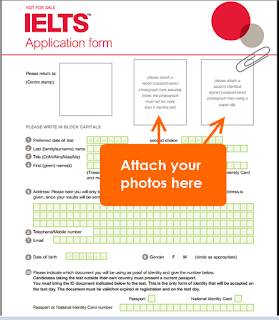It's no secret that
IELTS candidates have to spend lots of hours practicing or reviewing for their
listening exam. After all, if they don't, getting their desired band score would be quite difficult.
However, a number of candidates think that if they've already received their listening lessons during class, they don't need to study when they're at home. If you feel that you're part of this group, then keep in mind that you're not taking advantage of familiar activities that could contribute to improving your skills in listening.
What are the 2 things that you could do to improve your listening skills even when you're not in IELTS class?
Simple. We humbly recommend that you listen to and watch programs in English.
Why are these things important?
In the listening test, a recording will be played and you will hear a number of persons who may have different accents. Listening to the recording could be difficult to understand, especially for those who are unfamiliar with the test.
Ok, you've already been listening to or watching programs in English. What exactly should you take note of?
The key here is to familiarize yourself with how native English speakers talk.
Do note that if you won't acquaint yourself with the way these speakers talk, then there's a huge possibility that you won't be able to understand what they're going to say. Consequently, you won't be able to find out the answers needed for your test, which would, in turn, result in a low band score.
Fortunately there's a video that shows us the way for understanding native speakers of English. In this video, Ms. Minoo Short, Head Teacher at Anglo-Link discussed and gave examples to two challenges when listening to native English speakers. Thus:
(1) First is that we should be able to identify words that have similar vowels and dipthongs
Examples: "than-then," "bit-bet," or "live-leave"
(2) Next is that we should be able to identify how native speakers use contractions, weak forms, and phonetic links.
Examples:
Re: Contractions
"I'm going to the mall." instead of "I am going to the mall."
Re: Weak Links
-"Here's ma book." where you could barely hear the "y" in "my"
Re: Phonetic Links
-"She(y)isinterestedinit." instead of "She is interested in it."
Now, try to be alert with these whenever you listen or watch English language programs. However, if you want to bring it up a notch, Ms. Short recommends that you could listen to portions of your
IELTS listening materials, then attempt to transcribe them correctly. You'd be able to know that you've made progress when what you've written matches with those of the tapescript.
There you have it. Listen to or watch programs in English, and improve on your listening skills in no time!
Attribution to Anglo-Link's Head Teacher, Minoo Short, for inspiring our tips for today. Check our her complete and detailed discussion of this topic on her
YouTube channel.



